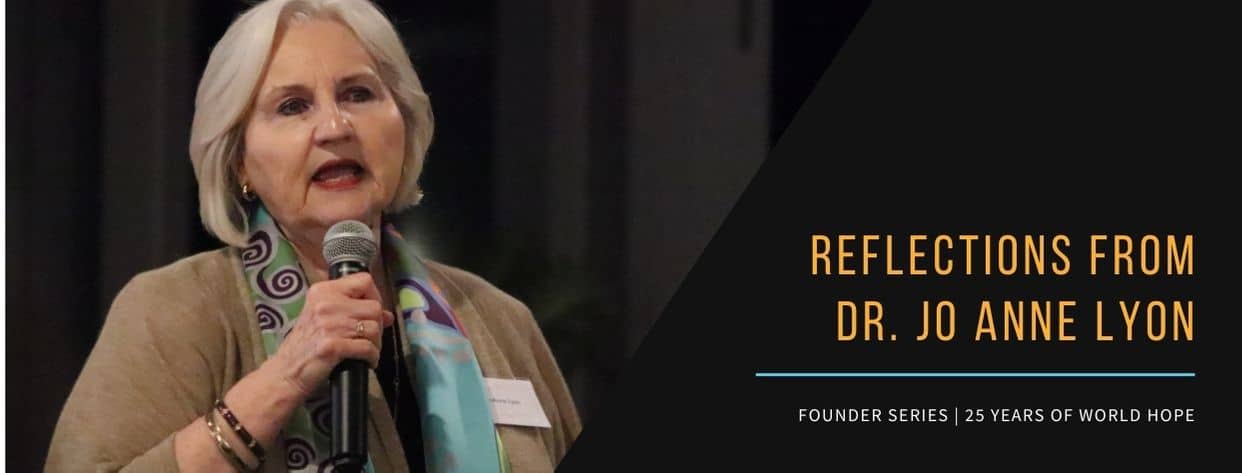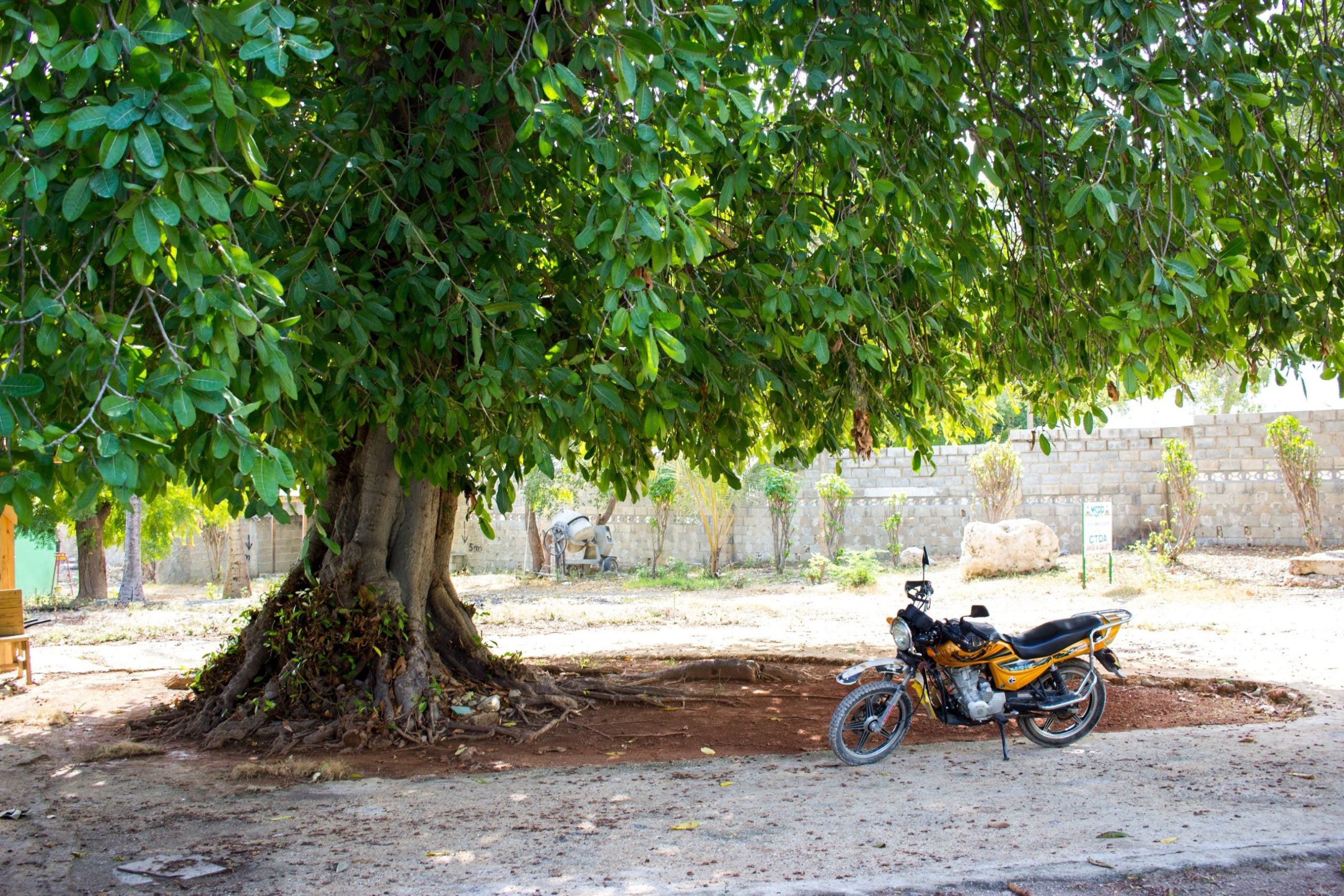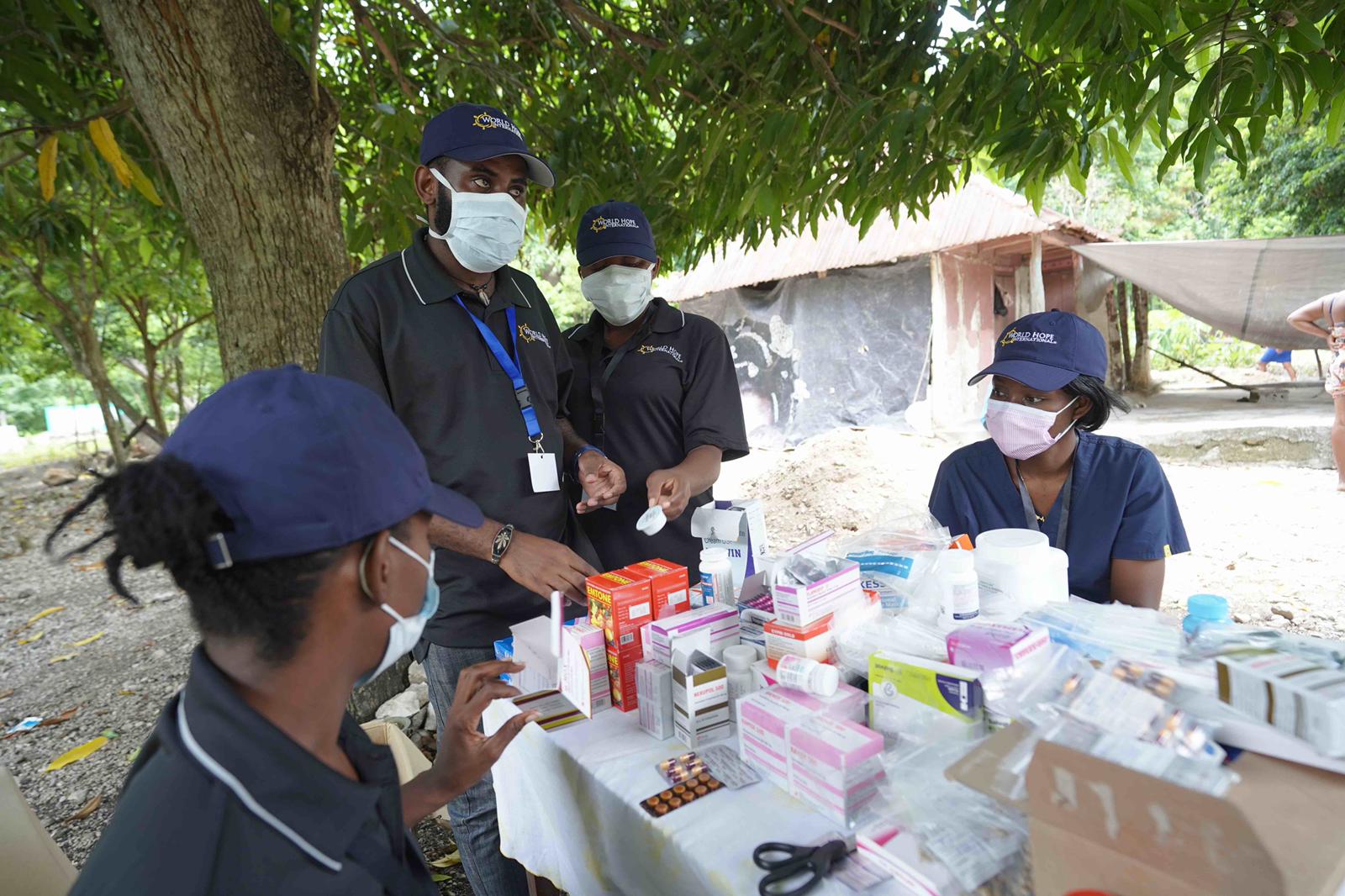
At the Heart of Service
Dr. Jo Anne Lyon, World Hope International’s Founder, continues her series of reflections in this month’s post, related to the earthquake that struck Haiti on August 14, 2021…
“Oh no, not another disaster in Haiti” are the words I heard recently repeated too many times as the word spread a few weeks ago about “yet another” earthquake in Haiti. “We have not rebuilt from the 2010 earthquake,” were also comments made in desperation. Then, as if an earthquake was not enough, a tropical storm followed on the heels of the earthquake, pounding already shaken ground and people without shelter. Again, the laments rose of “How much more can Haiti suffer?”
Frankly, these same thoughts ran through my head at one point. But then something wonderful began to happen; something that dispelled my doubt and questioning. People began to respond anyways. People began loving their neighbors. And not only people in North America were responding, but local Haitians themselves—even those who had been impacted by the earthquake—began to mobilize resources and respond to the disaster.
I have heard people in North America say, “I am giving up on Haiti, the government is always in trouble, the weather is unpredictable, and I see no hope.” Hearing these statements, though, I can’t help but think, somehow, in this framing, people are not the center. And how does this square with the command to “Love your neighbor as yourself” – I guess only if it looks as if it will be successful economically?
As I reflect personally on Haiti in the past 25 years, I see people and communities who have flourished despite dysfunctional governments and unpredictable weather. I think further back to the medical missionaries in the 1940’s who pitched a tent under a tree on the Island of La Gonave and started a hospital. Yes, they named it as such – not even a clinic! Their vision was a hospital. Today, the La Gonâve Wesleyen Hospital stands on that very ground, continuing to serve the 120,000+ people on the little island as well as continuing to train doctors and have a full-fledged nursing school attached. Those nurses are finishing with top scores in their final nursing exams and fanning throughout the country—making healthcare accessible even in some of the most “hard to reach” areas.

The tree where they used to see patients before the hospital was built
In the most recent Earthquake (on August 14, 2021), the Haitian doctors and nurses trained from La Gonâve Wesleyen Hospital were flown into the heart of the earthquake destruction zone within 24-hours of the quake. They set up outdoor clinics under trees (such as in the 1940’s) and worked hard to save the lives of those injured in the earthquake. This is “loving your neighbor as yourself” in action.
I think as well of the ongoing education that most churches of various traditions throughout Haiti provide. The majority have a primary and secondary school as well as trade schools. Today, there are many Haitians who received their initial education in these schools and who now hold PhD’s and other graduate level degrees, serving in Haiti and throughout the world.

A team from La Gonâve Wesleyen Hospital serving on the mainland as part of the hospital’s national earthquake response.
Through the church networks, community happens; people caring for each other. And this generosity of spirit and love reaches beyond the church community and to the entire nation.
In the 1970’s and 80’s, two doctors from the La Gonâve Wesleyen Hospital, along with others, led the way in helping eradicate tuberculosis from the entire country of Haiti. One of the first programs World Hope International set up in Haiti in 1996 was the first Computer School in Haiti. The school was operated by a Haitian church leader who had been educated in Montreal with computer science. Today, hundreds of people now have employment in Haiti and elsewhere because of this school.
I could go on and on with positive stories of people and communities who have flourished despite outside forces, as governments struggle on and weather flexes and batters away. But perhaps Maria Abi-Habib, Bureau Chief of the New York Times for Mexico, Central America and the Caribbean brings a fresh look. She tells on a NYT podcast with Michael Barbaro of her personal harrowing experience of the earthquake in Haiti, where she was on another assignment. During the podcast, she relates how one of the first places she visited afterward the earthquake was a damaged church, and that amid the debris, people were serving, taking care of other people, and using the resources they had. After further description and commentary, she observed that “the church is the only institution of support that [Haitians] know. This is where they educate their kids. This is where they can get maybe some medical aid. This is where they have community.” And I think this is so powerful; that the church body should be at the heart of service and feel like a safety network; be sanctuary—whether the church buildings themselves crumble or stand.
It is the privilege of World Hope International and our partners to work alongside the Haitian faith community and continue to see people and communities flourish through the love of God—a power greater than weather or government dysfunction. And I have been touched to see that even amid the questions, generosity has flowed over, and the global faith community has responded alongside the Haitian faith community in this spirit of loving our neighbor as ourselves.
World Hope International works closely with La Gonâve Wesleyen Hospital – learn more about the hospital, the collaboration, and the future. You can also make a gift to The Hope Fund, which allows us to respond where and when it matters.
